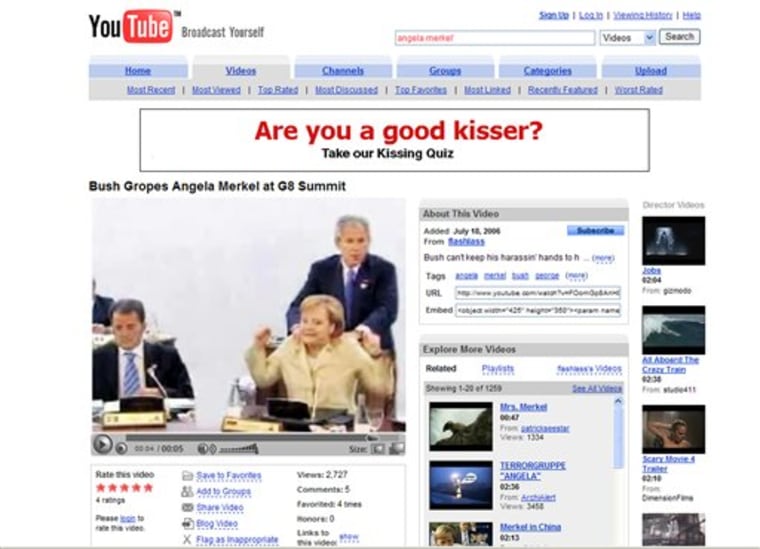The popular video-sharing site YouTube is giving contributors more details about who's watching their video clips and when, offering advertisers additional insights they can use to target their pitches.
The free program, known as YouTube Insight, also could help bands schedule their concerts and help anyone time the release of a new video.
The launch of Insight on Thursday comes as Google Inc. looks for ways to make money off its $1.76 billion purchase of YouTube in 2006. Despite growing interest in online video ads, many marketers have stayed away from user-generated video like what's on YouTube.
Marketers who buy ads on YouTube already get a bevy of statistics about the performance of their ads. The new program breaks down viewership by day and shows the states or countries where most viewers are.
A movie studio that uploads a trailer for free on YouTube could use those details to see where the clip is most popular and perhaps buy ads targeted to users in that region — on YouTube and even on television.
But everyday contributors also can benefit from the new program, said Tracy Chan, a YouTube program manager. Until now, those users got limited information, such as how many times their video was viewed or commented on.
The new tools "give a lot of context around the performance of video over time, where are your audience coming from and how your message is connecting to your audience," Chan said.
A band could use that information to plan stops on a tour, while video producers who find their viewership peaks on Wednesdays could release new clips then. Likewise, producers who see their shows peaking after three weeks would know to release a new episode every three weeks, and someone whose material turns out to be popular in Spain might want to release the next video in Spanish.
"With this information, you can concentrate on creating compelling new content that appeals to your target audiences and post these videos on days you know these viewers are on the site," YouTube officials said in a blog entry announcing the program.
Upcoming features may indicate how viewers find a video, through a search, an outside link or YouTube's share-with-a-friend feature, Chan said.
The new viewership breakdowns, like the current ones, will count on the number of times users start a video but not necessarily how many finish it. Geographic information is based on viewers' numeric Internet Protocol address, the same mechanism Google uses to target ads by region.
Some data will still be limited to paid advertisers, including information on how many viewers make it through 25 percent, 50 percent or all of a video.
